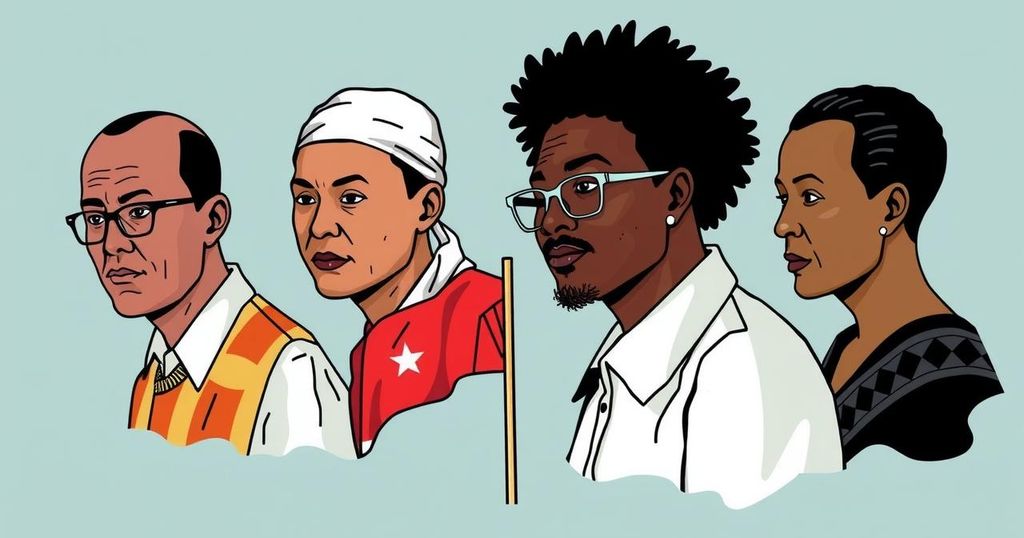Chad: Tension Mounts as Opposition and Civil Society Threaten Election Disruption

Tensions rise in Chad as opposition and civil society vow to disrupt Sunday elections, alleging rigging in favor of President Deby. Citizens are warned against participation due to fears of violence. Concerns about election safety proliferate amidst ongoing opposition campaigns and governmental assurances of security.
In Chad, rising tensions are evident as opposition groups and civil society intend to disrupt the local council, regional, and parliamentary elections scheduled for Sunday. Accusations of electoral manipulation favoring President Mahamat Idriss Deby have prompted these groups to advise citizens to abstain from voting to avoid potential violence. Many Chadians, particularly in the capital N’Djamena, express uncertainty regarding the elections amid threats of aggression against those who participate.
A notable voice among the youth, Limana Abba, a 23-year-old university student, shared concerns about the credibility of the voting process. Opposition groups have been actively warning residents against voting, raising fears that intimidation could thwart participation. Concerns about the ability of military and police forces to protect voters and uphold a safe electoral environment have also surfaced, despite government assurances.
Chadian officials assert that security forces are prepared to protect civilians and prevent disruptions. Yet, ongoing opposition campaigns claim that the elections cannot be trusted under a regime that has been marked by allegations of corruption and human rights abuses. Soumaine Adoum, a spokesperson for the coalition Wakit Tama, emphasizes a lack of public trust in President Deby, urging citizens to remain at home as a protest on Election Day.
The controversial elections follow a three-year transitional period after the demise of former President Idriss Deby, with officials emphasizing the need to restore parliamentary governance. However, numerous opposition figures have faced arrests leading up to this pivotal event, intensifying the climate of fear and distrust surrounding the electoral process. As the elections approach, the government’s call for participation clashes sharply with widespread opposition sentiments and threats of violence, casting a shadow over the legitimacy of these forthcoming elections.
The current political climate in Chad is characterized by heightened tensions surrounding the upcoming local, regional, and parliamentary elections, reflective of the ongoing struggle for democratic governance. Since the death of long-serving President Idriss Deby in April 2021, the country has been under military transitional leadership, aiming to reinstate the National Assembly. However, the opposition maintains that the political environment remains replete with corruption, human rights violations, and a lack of free expression, leading to widespread distrust in the electoral process. Various civil society organizations, while intended to support governance and human rights, have recently been implicated in inciting unrest against the elections, complicating the characterization of their actions within the context of democratic principles.
In conclusion, the upcoming elections in Chad are steeped in controversy and tension, with significant opposition and civil society groups calling for a boycott amid fears of electoral fraud and violence. Many citizens express doubt over the capacity of security forces to ensure a safe voting environment, while the government continues to assert its commitment to a credible electoral process. As the situation unfolds, the juxtaposition of governmental assurances against the backdrop of widespread opposition sentiment raises important questions about the future of democracy and governance in Chad.
Original Source: www.voanews.com







